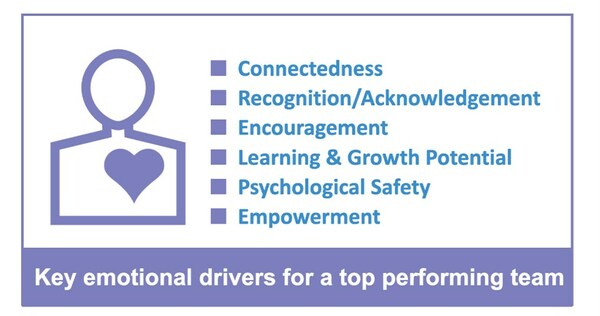New study findings indicate that just 30 percent of workplace teams are regarded as high-performing.
Dale Carnegie and Associates researchers released the study, which surveyed 2,650 global leaders across 15 countries, to assist business leaders in identifying factors and key drivers connected to high-performing teams.
The report, “A Leadership Imperative: Creating a Culture of High-Performing Teams,” highlights essential factors organizations can focus on to propel their teams to the next level.
“Today’s organizations are managing an increasingly diverse and mobilized workforce,” said Joe Hart, president and CEO of Dale Carnegie and Associates. “This creates unique challenges, especially when it comes to how teams work together effectively. Insufficient, underperforming or unseen leadership often leaves team members dissatisfied, causing them to feel unsupported and unappreciated.”
Even when teams are developed with quality talent and complementary skillsets, performance can still suffer, especially without a culture where that talent works closely and effectively together, the researchers found.
Since less than one-third of teams are reported to function at this level, it’s clear that organizations need to better understand how to implement best practices that create high performers across a hybrid workforce, the researchers said.
Leaders of the most talented teams must ask: “What key steps do we need to focus on to propel performance and teamwork to the next level?”
In response to this question, researchers’ key findings demonstrate that high-performing teams are not a product of chance:
- 85 percent of high-performing teams reported having well-defined goals.
- 81 percent of high-performing teams interact daily, making effective communication a valuable contributor to team outcomes.
- 74 percent of high-performing teams had access to training and development compared to 49 percent of all others.
Building high-performing teams requires ongoing effort from leaders, managers and team members, the study found.

“Leaders must champion adaptability, engagement and a culture that values individual and collective achievement in an ever-evolving business landscape,” the report noted.
The findings indicate that transparent communication, clear goals and cross-functional collaboration, creating adaptability and psychological safety are integral to effective team leadership.
Within a teamwork culture, individuals can commit to accountability and transparency, founded on shared values, continuous learning and meaningful communication, the researchers noted.
“In an evolving corporate landscape, leaders have a critical responsibility to create a shared culture that drives employee satisfaction and positive emotional and behavioral change,” Hart added. “By creating a shared culture, leaders honor both individual and community achievement and achieve higher performance standards for teams and the organization.”
To read an in-depth analysis of the research that includes the seven key influences to creating a culture that supports the development of high-performing teams, download the full report at A Leadership Imperative: Creating a Culture of High-Performing Teams | Dale Carnegie Training.





















 Winter Storm Fern to Cost $4B to $6.7B in Insured Losses: KCC, Verisk
Winter Storm Fern to Cost $4B to $6.7B in Insured Losses: KCC, Verisk  Lessons From 25 Years Leading Accident & Health at Crum & Forster
Lessons From 25 Years Leading Accident & Health at Crum & Forster  Execs, Risk Experts on Edge: Geopolitical Risks Top ‘Turbulent’ Outlook
Execs, Risk Experts on Edge: Geopolitical Risks Top ‘Turbulent’ Outlook  Beazley Agrees to Zurich’s Sweetened £8 Billion Takeover Bid
Beazley Agrees to Zurich’s Sweetened £8 Billion Takeover Bid 




